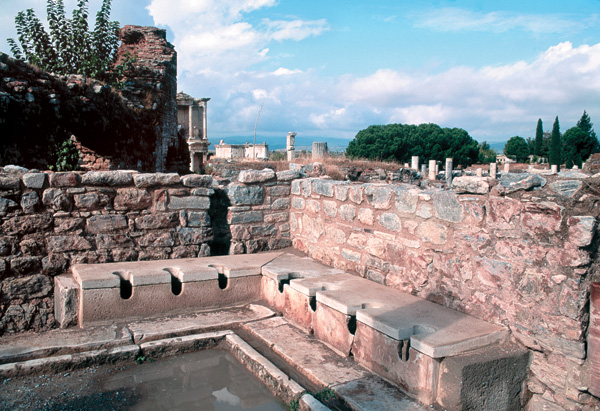
According to the satirist Juvenal (c. 55–130 C.E.), ancient Rome was a nasty place of piercing noises, rotting food, precariously loaded wagons, sweaty crowds and thick mud (or choking dust, depending on the time of year). And things got even worse after dark, when muggers, hoodlums and drunks reigned in the streets. The city’s inhabitants would simply fling broken objects, such as ceramic jars, out on the roads, which served as a common dump. Worst of all, Romans living in the upper stories of buildings would empty their slop buckets (patulas defundere pelves)—full of kitchen refuse, urine and excrement—on the heads of startled passersby (Satires 3.269-277).
Was Juvenal trying to be funny, or was he describing a disgusting reality? Did the Romans really dump the unsavory (and unhealthy) contents of their chamber pots right onto the street? Did they evacuate their bowels in public bath waters, as some scholars suggest?1 What did they think about human waste, and how did they deal with it?
Already a library member? Log in here.
Institution user? Log in with your IP address.

